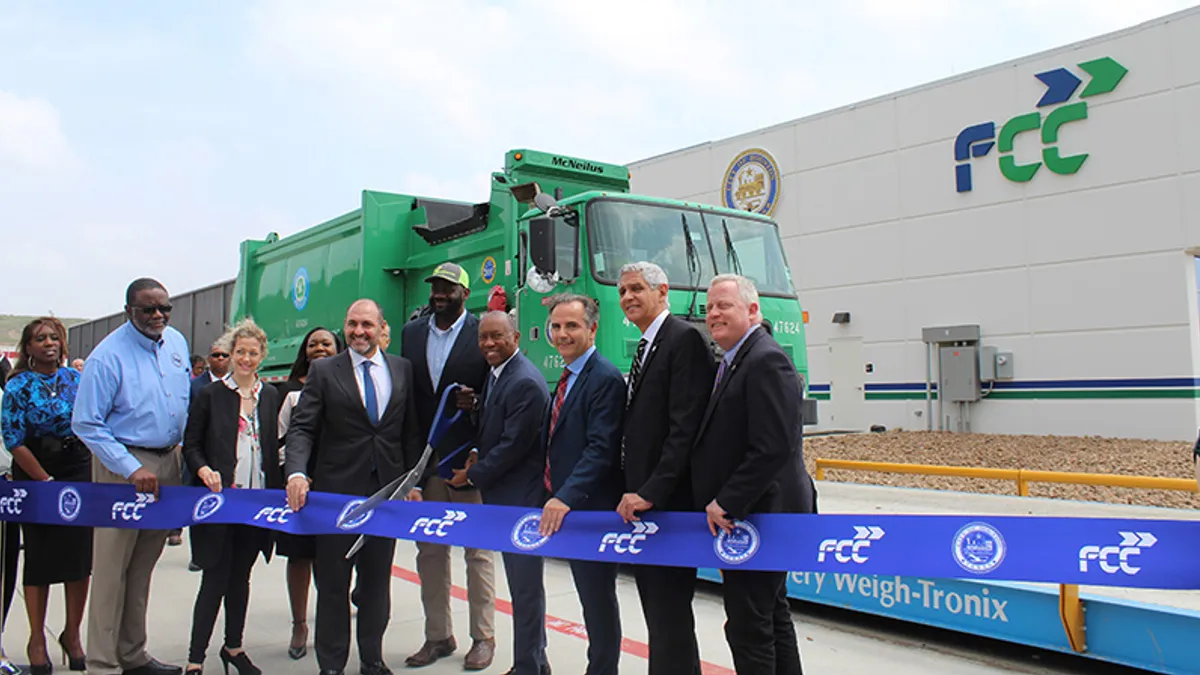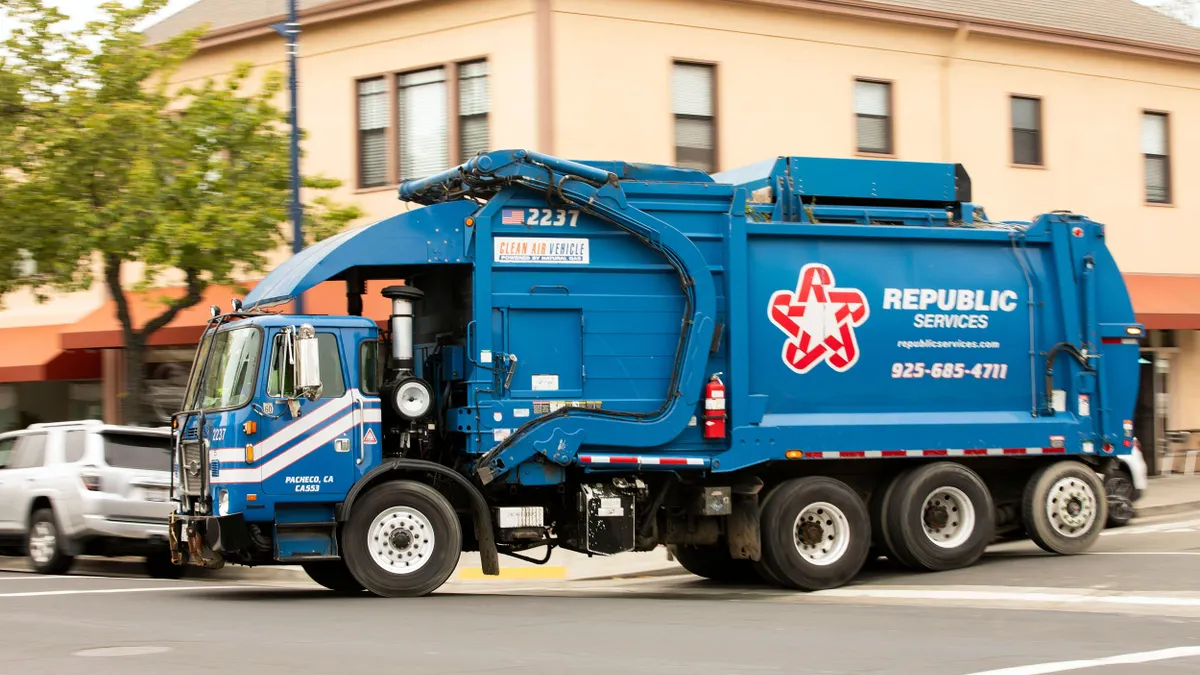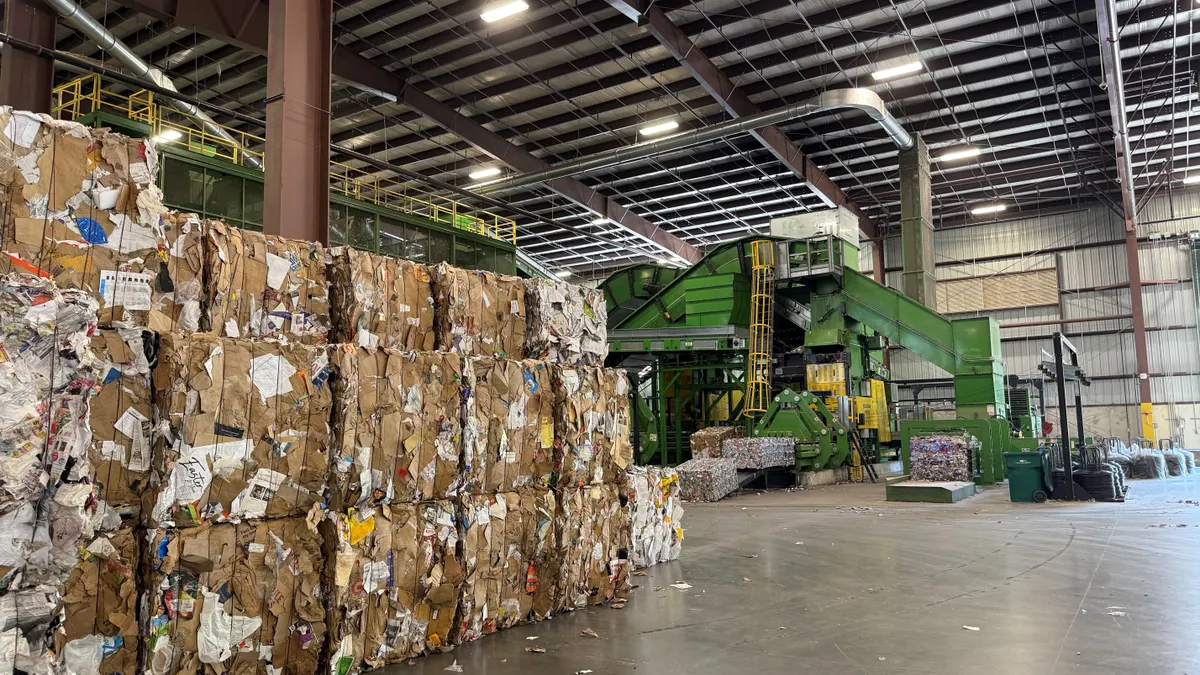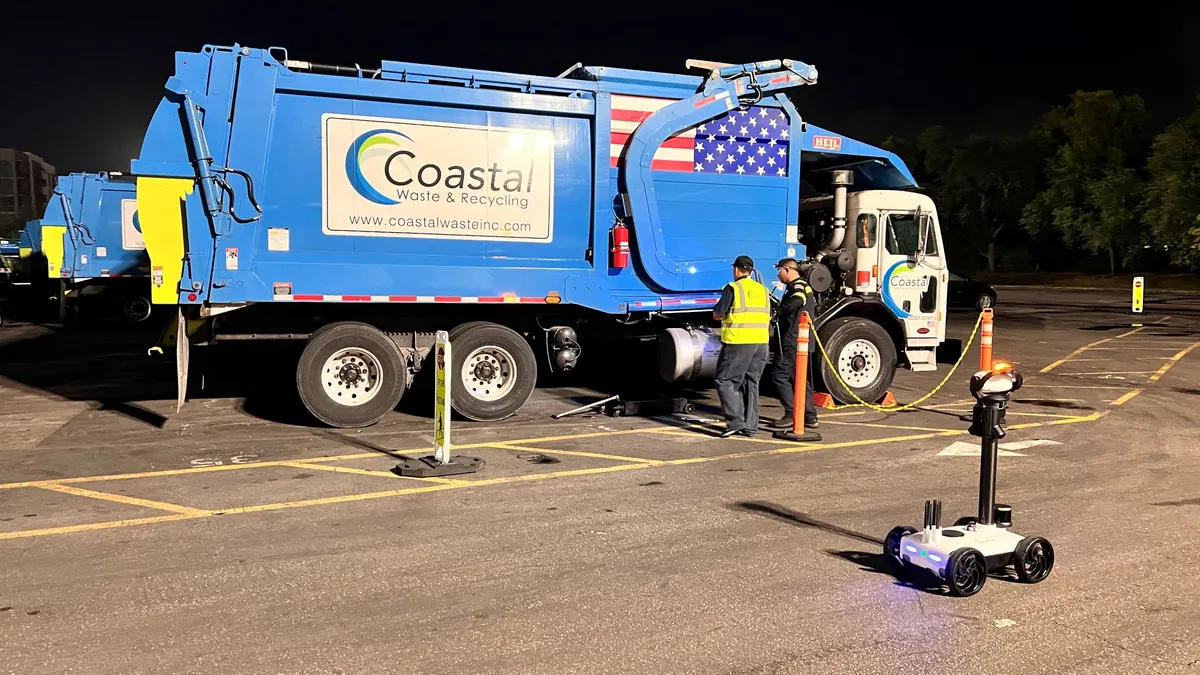Back when FCC Environmental Services entered the U.S. solid waste market a little less than five years ago, its competitive fate was far from certain. Now, the Spanish entrant has a foothold and is poised to enter a new phase.
"Our first goal was to understand the market and learn where we could fit and where we could be competitive, and so far we are really proud of what we made," CEO Inigo Sanz told Waste Dive at last week's WasteExpo. "We've signed 13 contracts in some of the most important cities and counties in the country. I believe we found a place for our company here."
The Houston-based division of multinational FCC Group has contracts across multiple municipalities in Texas and Florida, two new MRFs in Houston and Dallas, a fleet of around 500 trucks and the claim to fame of winning bids over much larger U.S. incumbents. While the company has had to adapt to a tighter labor market for truck drivers than in Europe (among other surprises), it reports a sturdy foundation. The U.S. solid waste division is on track to generate an estimated $100 million in revenue this year, according to Sanz, and the FCC Group's latest annual report described the country as a "market with high development potential."
Next up, the company is awaiting a vote to potentially win a major 10-year collection contract in Omaha, Nebraska and is pursuing RFPs in various regions — but Sanz also revealed additional growth plans.
"We'll probably start looking for small companies in the same areas where we are today and also medium-sized companies in other areas. So we're going to start looking to grow faster by doing some selective acquisitions in the market."
FCC defines small companies as tuck-ins within a 20-40 mile radius of existing operations. Medium companies — between $30-70 million in annual revenue, with a mix of residential and commercial business — could potentially be in new areas "because we believe that they would be big enough for us to start a business there."
The U.S. solid waste and recycling market has seen plenty of recent consolidation, including major notable deals (potential and complete) within the past year. Still, it's estimated that a sizable chunk of private companies in FCC's target size remain. The expected divestment of assets from the pending Waste Management-Advanced Disposal Services merger opens yet another set of opportunities for all involved.
Given the FCC Group's profile of various services in 35 countries — including some European contracts that date back decades (or, in Barcelona's case, more than a century) — its promise to expand should be taken seriously. Mexican billionaire Carlos Slim is a primary shareholder, and the company reported €358.48 million (approximately $402.74 million USD) in earnings before taxes last year.
This level of backing has led some in the industry, including key financial analysts, to question whether FCC Environmental is intentionally bidding low to establish its U.S. footprint and disregarding standard profitability metrics. The 2018 Houston recycling contract award, which Mayor Sylvester Turner estimated to be 67% cheaper than the city's prior deal with Waste Management, came under particular scrutiny. Asked to respond, Sanz said FCC hasn't always been the cheapest in successful bids and disputed the critique that the company's math doesn't work in Houston in particularly.
"We were very, very close. Very close. It was the difference of a few dollars. I believe that that was not the difference. I believe that the difference was that we were the only company proposing a new facility with new equipment and in a new location," he said, noting that while FCC's floor price may have been lower, its processing fee was similar. Waste Management, in contrast, was unwilling to agree to a floor price at all.
Asked how FCC is faring amid a tight commodity market, Sanz said his two Texas MRFs' advanced equipment and proximity to multiple paper mills has allowed them to continue moving material with minimal issue.
Sanz also highlighted FCC's emphasis on technology as a competitive advantage for collection contracts. The company's Omaha bid — which came in lower than incumbent Waste Management's, as well as Waste Connections' — includes promises that vehicles will include RFID readers for carts and containers, a GPS location system, two-way radios and 3rd Eye camera systems.
In considering how the company plans to differentiate itself — particularly if regulations or market conditions change in response to the climate crisis — Sanz sees European-style trends potentially taking hold in more of the U.S. He is preparing for expectations of "not only CNG, but maybe hybrid or electric vehicles everywhere" as well as rising demand for non-landfill disposal options.
"In some areas of the Northeast and probably also in the West, I believe that there will come a time for waste-to-energy," said Sanz, noting the FCC Group has 11 such facilities in its portfolio. "If there's any bid on any potential opportunity for us to develop a project for waste-to-energy in the U.S., we will be ready for that."
Correction: A previous version of this story reported the FCC Group's annual earnings in billions, instead of millions.




















